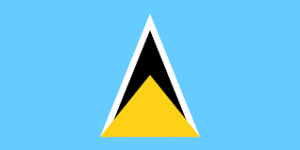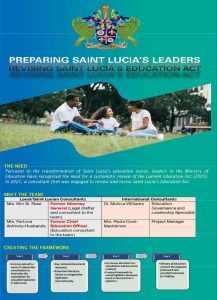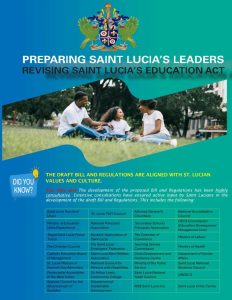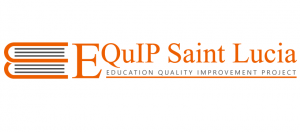HEALTH AND WELLBEING
All efforts need to be made to mitigate the effects of COVID-19
and reduce the potential for transmission. Educational institutions
are urged to practice the following measures:
SCHOOL ADMINISTRATORS, TEACHERS AND STAFF
Following basic principles can help keep students, teachers and
staff safe at school and help stop the spread of this disease.
Recommendations for healthy schools are:
- Sick students, teachers and other staff should not come to school
- Schools should enforce regular hand washing with safe water and soap, alcohol rub/hand sanitizer or chlorine solution
and, at a minimum, daily disinfection and cleaning of school surfaces - Schools should provide water, sanitation and waste management facilities and follow environmental cleaning and decontamination procedures
- Schools should promote social distancing (a term applied to certain actions that are taken to slow down the spread of a
highly contagious disease, including limiting large groups ofpeople coming together. - Know the latest facts:
- Understand basic information about coronavirus disease (COVID-19), including its symptoms, complications, how it is transmitted and how to prevent transmission. Stay informed about COVID19 through reputable sources such as the Ministry
of Health, UNICEF, WHO advisories. Be aware of fake information/myths that may circulate by word-of-mouth or social media. - Should a student arrive at school or present symptoms of the common cold or flu while at school, parents should be called to pick them up. Schools should also identify a space for initial quarantine of the student until picked up by the parent.
- Should a teacher arrive at school or present symptoms of the common cold or flu while at school the teacher should seek
permission to return home as per the set protocol. The Principal may recommend that the teacher seeks professional health care.
STUDENTS AND CHILDREN
Children and young people should understand basic, ageappropriate information about coronavirus disease (COVID-19),
including its symptoms, complications, how it is transmitted and
how to prevent transmission.
- Protect yourself and others. Wash your hands frequently, always with soap and water for at least 20 seconds. Use an alcohol-based hand sanitizer if soap and water are not available.
- Avoid touching your eyes, nose and mouth.
- Cover your mouth and nose with tissue or your inner elbow when coughing or sneezing. Do not use your hands. Throw
the tissue in the trash. - Tell an adult if you develop any of the following symptoms:
a. High fever
b. Cough
c. Shortness of breath
d. Difficulty breathing
e. Avoid unprotected contact with sick people
and with live farm or wild animals.
PARENTS/CAREGIVERS AND COMMUNITY MEMBERS
- COVID-19 is a new virus and we are still learning about how it affects children. We know it is possible for people of any age to be
infected with the virus, but so far there have been relatively few cases of COVID-19 reported among children. The virus can be
fatal in cases, so far mainly among older people with pre-existing medical conditions
Monitor your child’s health and keep them home from school if they are ill - Teach and model good hygiene practices for your children. Wash your hands with soap and safe water frequently. If
soap and water are not readily available, use an alcoho lbased hand sanitizer with at least 60% alcohol. - Always wash hands with soap and water, if hands are visibly dirty
- Ensure that safe drinking water is available and toilets or latrines are clean and available at home
- Ensure waste is safely collected, stored and disposed of
- Cough and sneeze into a tissue or your elbow and avoid touching your face, eyes, mouth, nose
- Encourage your children to ask questions and express their feelings with you and their teachers. Remember that your
child may have different reactions to stress; be patient and understanding. - Prevent stigma by using facts and reminding children/wards to be considerate of one another
- Coordinate with the school to receive information and ask how you can support school safety efforts (though parentteacher committees, etc.)
SCHOOL CLOSURE
Should the COVID-19 cause closure of all educational institutions, the Department of Education, Innovation and Gender Relations
wishes to advise that the following Action Plan is to be followed:
INSTRUCTION
All educational institutions should make immediate preparations to transition to non-face-to-face delivery of instruction and satisfy
academic requirements remotely to the greatest extent possible. This must be done in consultation with the Principal and Education
Officer. Once school has been closed and students sent home, Principals and teachers are to report to the school for 2 days to prepare teaching and learning material to be shared with students via identified platforms/media. In the event of school closure, all school related activities will be cancelled
FOR EARLY CHILDHOOD CENTERS:
- Early learners should be kept home
FOR PRIMARY & SPECIAL EDUCATION SCHOOLS:
- Engage NTN to air pre-selected educational topics as per
the curriculum - Teachers to prepare instructional material for students
relevant to the teaching and learning strategies - Information to be sent via virtual modes
– Virtual platforms
-School Facebook page with parental consent and supervision
-Whatsapp Chats - Facilitate a support system where a parent without internet
connectivity can access the information from another
source - Encourage an environment for sharing (e.g. telephone) for building community learning
FOR SECONDARY SCHOOLS:
- Use Google Classrooms
- Teachers should send work to students using Edmodo
on a weekly basis. This should be aligned with the
topics on the syllabus to be covered during that
period. - Teachers should post powerpoint presentations on
the topic at hand. - Teachers should refer students to appropriate
videos online - Teachers can send presentations via whatsapp,
email and other appropriate media to students
and parents - Assessments can be done online where necessary
- Engage NTN and other to air pre-selected educational
topics as per the curriculum
TERTIARY INSTITUTIONS:
- Tertiary institutions should plan to transition to remote work
where ever possible through online classes using Moodle or
any other online learning platform.
Out of Classroom Platforms and Support
The following are suggested educational platforms:
1. Google Classroom – https://classroom.google.com/u/0/h
2. IXL Personalized Learning – www.ixl.com
3. Moodle – https://moodle.org
4. Schoology – https://www.schoology.com
5. Edmodo – https://go.edmodo.com/teachers/
6. Sakai – https://www.sakailms.org
7. Showbie – https://www.showbie.com
8. Castle Learning – https://www.castlelearning.com
9. iTunes U – https://www.apple.com/education/
10. Canvas –
https://www.instructure.com/canvas/?newhome=canvas
11. Pearson – https://www.pearsonschool.com
12. Khan Academy – www.khanacademy.com
13. Numeracy hours: https://training.education.gov.lc/
14. https://www.tes.com/teaching-resources
15. http://www.bized.com/
16. https://www.educationcorner.com/study-skills.html
17. https://www.bbc.co.uk/bitesize
18. https://www.wto.org/
19.https://www.youthforhumanrights.org/request-info/educatorskit.html
20. https://www.singaporemath.com/
REFERENCES
Ministry of Health Guidelines
UNICEF Key Messages and Action for COVID-19
Ministry of Education, Science and technology, Antigua – COVID19 Guidance & Protocol for all Education and Education-related
Institutions




